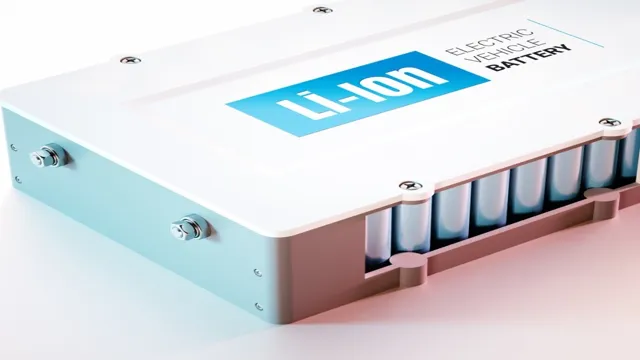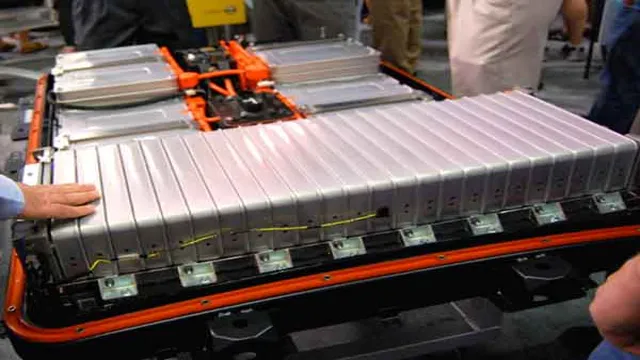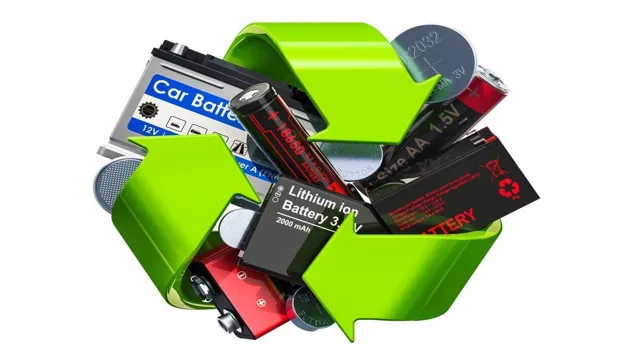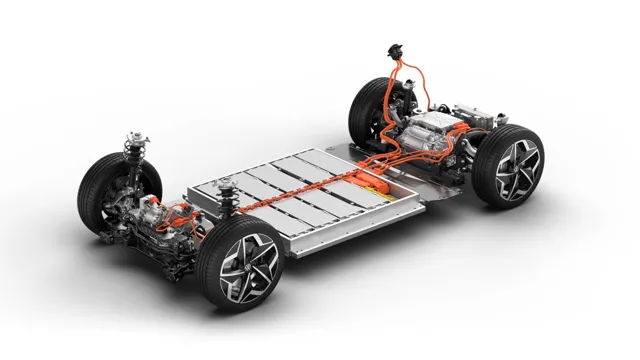Revolutionizing Sustainability: Debunking the Myth of Electric Car Pollution and Battery Contamination
Electric cars are slowly but surely gaining popularity in many parts of the world. While conventional vehicles still reign supreme in terms of sales, governments and environmental enthusiasts are pushing for the adoption of electric vehicles (EVs) as a way to mitigate pollution and reduce carbon emissions. The big question, however, is just how much impact these cars have on pollution levels.
Are they really the perfect solution to our pollution problem or are there hidden costs that we need to consider? In this blog post, we’ll delve into the impact of electric cars on pollution and try to shed some light on this increasingly hot topic.
Battery Production and Environmental Consequences
Electric cars have become increasingly popular due to their environmental sustainability, but the production of electric car batteries comes with its own set of environmental consequences. One of the main concerns is the pollution generated during the production of these batteries. It requires a significant amount of energy and minerals to manufacture the batteries, which can lead to an increase in carbon emissions and pollution.
However, it’s important to note that the overall environmental impact of electric cars compared to traditional gasoline cars is still significantly lower, even when factoring in the production of batteries. Innovations in battery technology and sustainable material sourcing are continuously being made to reduce the environmental impact of battery production and make electric cars even more eco-friendly.
Statistics on carbon emissions from battery production
The production of batteries has been increasing at an astronomical rate, with the demand for electric vehicles and other battery-powered devices growing. However, the environmental consequences of battery production have been a growing concern. Statistics show that producing a single battery can result in a significant amount of carbon emissions.
A study found that the production of a lithium-ion battery used in electric cars generates up to 74% more CO2 emissions than producing an internal combustion engine vehicle. Moreover, mining for the minerals required for batteries, such as lithium and cobalt, has significant environmental impacts, causing habitat destruction and polluting water sources. Therefore, while batteries may be a cleaner alternative in use, their production has substantial environmental consequences.
As consumers, we must be aware that the choices we make have impacts beyond our immediate usage, which includes considering the environmental cost of the products we use.

Impact of battery production on natural resources
Battery production has grown exponentially over the past few decades. With the increased demand for electric vehicles and portable electronic devices, the production of batteries has a significant impact on the environment. The natural resources required for the production of batteries include metals such as lithium, cobalt, nickel, and manganese, which are extracted from mines around the world.
The extraction process can be harmful, as it involves the displacement of local communities, destruction of ecosystems, and air and water pollution. In addition, the manufacturing process of batteries involves a considerable amount of energy, which is predominantly fossil-fuel based, contributing to greenhouse gas emissions and climate change. This highlights the need for sustainable practices in battery production, which can minimize the environmental impact of the process.
As consumers, we can play our part in reducing the demand for batteries by using electronic devices efficiently and choosing products that have a low impact on the environment.
Electric Cars and Clean Air
One of the biggest advantages of electric cars is their ability to reduce pollution. Unlike traditional gasoline-powered vehicles, electric cars don’t emit harmful gases or pollutants into the air. But, there’s a common misconception that electric car batteries are also harmful to the environment.
It’s true that the production of electric car batteries requires a significant amount of energy and resources, but they still have less environmental impact compared to the production and distribution of fossil fuels. Additionally, advancements in battery technology are constantly being made to improve performance and efficiency while reducing environmental impact. So, if you’re looking for a way to reduce your carbon footprint and contribute to clean air, switching to an electric car could be a great choice.
Comparison of electric car emissions to gas cars
Electric Cars When it comes to pollution, electric cars are a much cleaner option than gas cars. In fact, research has shown that electric cars produce zero emissions, which means they do not emit pollutants into the air. This is because they run on electricity that is generated from renewable sources such as wind, solar, and hydropower, which are much cleaner than fossil fuels that are used to power gas cars.
Moreover, electric cars can be charged using renewable energy sources such as home solar panels or public charging stations, making them even more eco-friendly. By switching to electric cars, we can significantly reduce air pollution, which is a major contributor to climate change and respiratory illnesses. So, why not switch to electric cars and play our part in protecting the environment and our health?
Positive impact of electric cars on air quality
Electric cars have a significant positive impact on air quality. With their zero-emission powertrains, they can reduce the amount of harmful pollutants that would have otherwise been released into the atmosphere, contributing to respiratory problems and other health risks. Unlike gasoline cars, electric cars do not emit carbon monoxide, nitrogen oxides, or particulate matter, which are known to cause severe damage to our health and the environment.
Additionally, the increased use of electric cars results in less dependence on fossil fuels and a cleaner atmosphere, leading to a healthier future for the planet. It’s not just about the reduction of emissions, but also the overall quality of our air. In summary, the switch to electric cars represents a significant opportunity to improve air quality and reduce the risk of respiratory issues in individuals.
Examples of cities with cleaner air due to electric cars
Electric cars are revolutionizing our cities and air quality. With reduced emissions and a trend towards green energy, electric cars are having a significant impact on the environment. Cities around the world are already experiencing cleaner air thanks to the widespread adoption of these vehicles.
One example is Oslo, the capital of Norway, where nearly 25% of all newly registered cars in 2020 were electric. As a result, there has been a reduction in air pollution and an improvement in the overall air quality. Another example is London, where the introduction of the Ultra Low Emission Zone (ULEZ) has led to a significant drop in the levels of harmful pollutants such as nitrogen oxides.
The ULEZ charges a daily fee to the most polluting vehicles, incentivizing drivers to switch to electric or other low-emission cars. As a result, air quality in central London has improved significantly since the ULEZ was introduced in 201 These are just two examples of how electric cars are contributing to cleaner air and a more sustainable future.
The benefits of electric cars go beyond just improving air quality; they also promote a shift towards more sustainable, renewable energy. As more cities encourage the use of electric cars by implementing incentives and infrastructure, we can expect to see even more benefits in the years to come.
Efforts to Reduce Electric Car Pollution
Electric car pollution is a growing concern for many individuals and organizations. However, efforts are being made to reduce this pollution and make electric vehicles more sustainable. One of the main ways that this is being accomplished is through battery technology advancements.
Batteries are becoming more efficient and cost-effective, which means that electric cars are becoming more accessible to the average person. Additionally, many companies are beginning to develop renewable energy sources, such as wind and solar power, to help power these cars. This not only reduces electric car pollution but also helps to create a more sustainable future for our planet.
It’s important to note that while electric cars currently produce less pollution than gasoline-powered cars, they are not completely emissions-free. However, with ongoing efforts and advancements, it’s possible that we’ll see a significant reduction in electric car pollution in the coming years.
Improvements in battery technology
Electric car manufacturers have been working hard to improve battery technology, which is key to reducing pollution emissions from these vehicles. One major effort has been to increase the energy density of batteries, which means they can store more power in a smaller package. This has led to improved driving range and reduced charging times.
Other advancements include more efficient battery cooling systems, which help extend the life of the batteries and prevent them from overheating or degrading quickly. Additionally, some manufacturers are experimenting with different types of battery chemistries, such as solid-state batteries, which have the potential to offer even greater energy density and longer-lasting performance. These improvements in battery technology are crucial for making electric cars more practical and accessible to a wider range of consumers.
As the market for electric cars continues to grow, we can expect to see further progress in this area, ultimately leading to cleaner and more sustainable transportation for all.
Increasing use of renewable energy to power electric cars
As electric cars become more popular, it’s important to think about reducing their pollution and impact on the environment. One way to do this is by increasing the use of renewable energy to power these cars. Solar, wind, and hydro power are all great options for generating clean energy that can be used to charge electric vehicles.
By using renewable energy sources, we can reduce our reliance on fossil fuels that contribute to air pollution and climate change. Additionally, as technology advances, there are more options for energy storage that can help make renewable energy more accessible and reliable. Overall, efforts to reduce electric car pollution are crucial for creating a more sustainable future for everyone.
Conclusion
In conclusion, while electric cars may not produce emissions directly, the production and disposal of their batteries still contribute to pollution. However, it’s important to remember that this issue is not unique to electric cars. Every technological advancement comes with its own environmental costs.
Rather than dismissing electric cars, we should continue to seek ways to improve battery production and recycling methods. After all, the electrification of transportation is a critical step towards a more sustainable future, and we should support that goal in any way we can. Plus, imagine a world where all vehicles run on clean electricity – it’s a charge we should all be willing to take.
“
FAQs
1. How do electric cars contribute to reducing pollution? A: Electric cars emit zero tailpipe emissions which helps in reducing pollution levels in the environment. 2. Are there any specific chemicals used in the batteries of electric cars? A: Yes, lithium-ion batteries are commonly used in electric cars. They are made of various chemicals including lithium, cobalt, and nickel. 3. How long does it take to charge an electric car battery? A: The charging time for electric car batteries varies depending on the level of charging required. Charging times range from a few hours to overnight. 4. Can electric car batteries be recycled? A: Yes, electric car batteries can be recycled. The process involves extracting valuable materials such as cobalt and lithium which can be reused in new batteries or other products.







